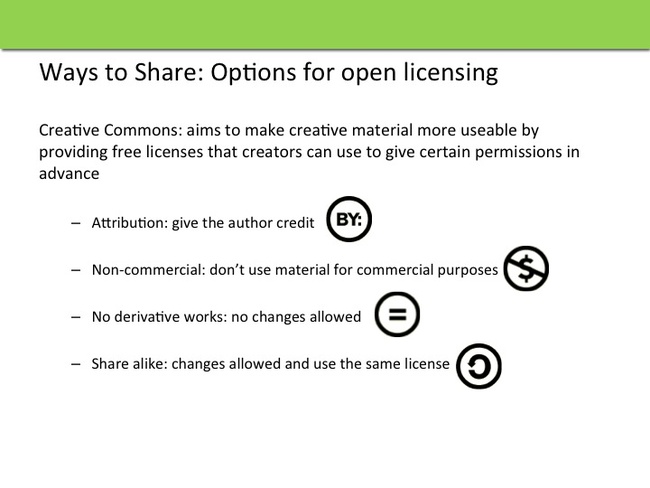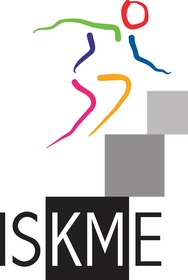OER Academy: Introduction to OER
Welcome
ISKME's OER Commons Team has designed these OER Academy modules to support and advance your open educational practice. Our comprehensive OER toolset and immersive professional learning program will assist educators in enhancing their capacities to use, evaluate, curate, and create OER.
This is the first module in our OER Academy series that will provide participants with an introduction to OER and the value add, highlighting successful use cases from around the world. We have designed these modules to first spark the learner's interest in the topics covered and then dig deeper into the content through presentations, storytelling, and demonstrations of the tools. We will offer opportunities for learners to practice exploring the resources and tools, and reflect on how they might use them in their work.
OER Academy Outline:
Introduction to OER (3 modules)
- Module 1 - Overview of the what, why, and how of OER; including an exploration in open licensing and a showcase of OER use cases from around the world
- Module 2 - Content Discovery: identify teaching and learning goals, search and browse collections
- Module 3 - Curation and Collaboration of OER with groups, shared folders and discussions
Quality Evaluation (2 modules)
- Module 1 - Quality: participants reflect and share their quality criteria for teaching and learning materials they use
- Module 2 - Tools for Evaluating: explore digital tools for assessing OER (Achieve Rubric, Rating, Comments)
Authoring and Remixing (3 modules)
- Module 1 - Authoring Toolset: demonstration of Open Author and Module Builders
- Module 2 - OER Design: discover instructional design supports, including templates
- Module 3 - OER Remix: overview of the what, why, and how of remixing OER
Open Education Practice for curriculum improvement (1 module)
- Deep dive into the feedback, refinement, reflection, and revision process
Leadership and Advocacy (1 module)
- Exploration and planning of ways to lead and advocate for OER
Pre-activities:
To participate in group discussions during the REFLECT sections you will need to create a login and join the Group. Please see instructions below
CREATE A PROFILE on OER Commons to be able to contribute to the discussions in our group, and to save, organize, remix, and author resources. Share some information about yourself and upload a photo or image here: https://www.oercommons.org/profile/edit
JOIN OUR GROUP Once you've logged in successfully, join the Introduction to OER Group by clicking "Join This Group"
OER Game Changers
Let's kick off this module by hearing from some of the members of our global community who are utilizing OER to transform teaching and learning.
WATCH the video below and get to know some OER game changers.
Game Changer: Open Education is Changing the Rules: https://www.youtube.com/watch?v=6Z7kEgIGVKQ
WATCH the video below to learn about how a group of educators from around the world collaborated with OER to teach climate change.
Open Education Matters: Why is it important to share content?: https://www.youtube.com/watch?v=dTNnxPcY49Q
REFLECT: Based on your current understanding, how might you describe OER to your colleagues? Reply here
*Reminder: you will need to be logged in and join the Introduction to OER Group to reply to the discussion.
OER Overview
Let's explore the what, why, and how of OER, highlighting use cases that have successfully adopted and implemented OER in their communities.
OER defined. We believe OER is both a noun and a verb.
Open Educational Resources (OER)
- noun: freely available teaching and learning and learning resources that reside in the public domain or have an open license, like Creative Commons (see image below), that allows educators to use, share, and in some cases remix to best meet their needs. The types of open educational resources include full courses, textbooks, videos, lesson plans, games, simulations, and readings.
- verb: to shift teaching practice and expand educator's roles as collaborators, curators, instructional designers, and leaders.

Creative Commons Licensing: a shift from "All rights reserved" to "Some rights reserved"
A deeper look into open educational practice:
• Collaboration: connect with educators with diverse expertise, brainstorm innovative ideas, contribute our resources and best practices, get and give feedback, reflect and share our successes and challenges with our community
• Curation: identify, evaluate, organize, and share resources that meet our learning goals
• Design: support personalized learning and continuous improvement of curriculum and courseware by utilizing supports like authoring templates and planning tools to think deeply about how we design resources to meet the unique needs of our learners, and reflect and refine resources
• Leadership: present, train, and share with others to build awareness and advocacy
Examples of successful OER use cases:
Global OER Fellowship Program: For the past 10 years, ISKME has worked with educators from six different continents who are collaboratively creating and sharing OER Projects and leading OER initiatives in their respective communities.
WATCH the video below to learn about the OER Fellowship Program in Qatar in 2013, where educators collaborated to curate OER, design and remix new OER Projects for their students, and lead OER implementation at their schools.
Open Qatar: OER Fellowship Program in Qatar: https://www.youtube.com/watch?v=lKCytZ71wts
Personalized Learning with OER Across the Hawaiian Islands: Back in 2011, the state of Hawaii adopted new learning standards and needed curriculum that filled their content gap areas and supported the new instructional shifts. Curriculum specialists began utilizing tools to identify, evaluate, recommend, remix, and share OER aligned to their new learning standards. They remixed the OER to localize it to their unique Hawaiian culture and to the needs of their students.
- For example, Math modeling was an area they needed OER for. They found a resource on population growth and remixed it to have it apply to a current issue around feral cat populations on the islands, and integrated writing exercises too. EXPLORE the OER here: Kitty Konundrum: The Environmental Impact of Feral Cat Reproduction
Reimagining the Role of Librarians to Support STEM Inquiry: In an effort to support school librarian leadership in advancing STEM Inquiry, ISKME is working with school cohorts consisting of STEM teachers and school librarians who are collaborating in groups to curate OER and using authoring templates to create STEM Inquiry lessons.
- For example, one librarian and two math educators collaborated to create a lesson that modeled text-based inquiry in STEM. Over the course of the lesson, students explore a variety of texts and grow in their knowledge of fractals, city design, and ability to use informational text to support their inquiry and research. EXPLORE the OER here: Fractals in Geometry: Fractal Cities, Now & Then
REFLECT Now that you have a deeper understanding and have had an opportunity to explore some OER, let's return to our discussion around what OER means to us. Read through the comments that were shared earlier and select one that you would like to add to. In your reply consider clarifying how OER is impacting teaching and learning. Reply to a comment here
Next Modules
Our next module will focus on OER Discovery and is aimed at supporting effective search and quality evaluation strategies to identify and evaluate OER relevant to desired use. We will get an opportunity to search using keywords that describe content gap areas of high need and refine our search results to OER that we can use.
The third module will explore OER Curation and present best practices and recommendations for curating high quality content, showcasing examples of how educators are curating content to meet their needs. We will demonstrate tools for saving and organizing OER in private and shared groups. Then, we will have time to practice using the tools to curate OER for immediate use in the classroom.
